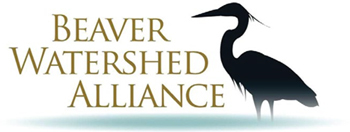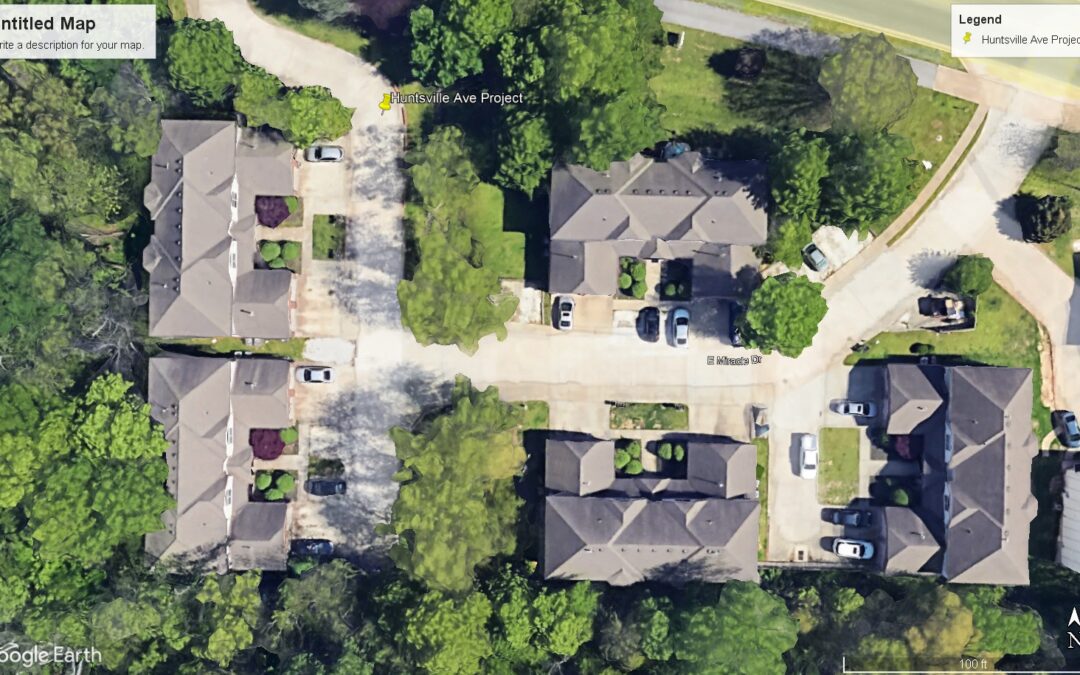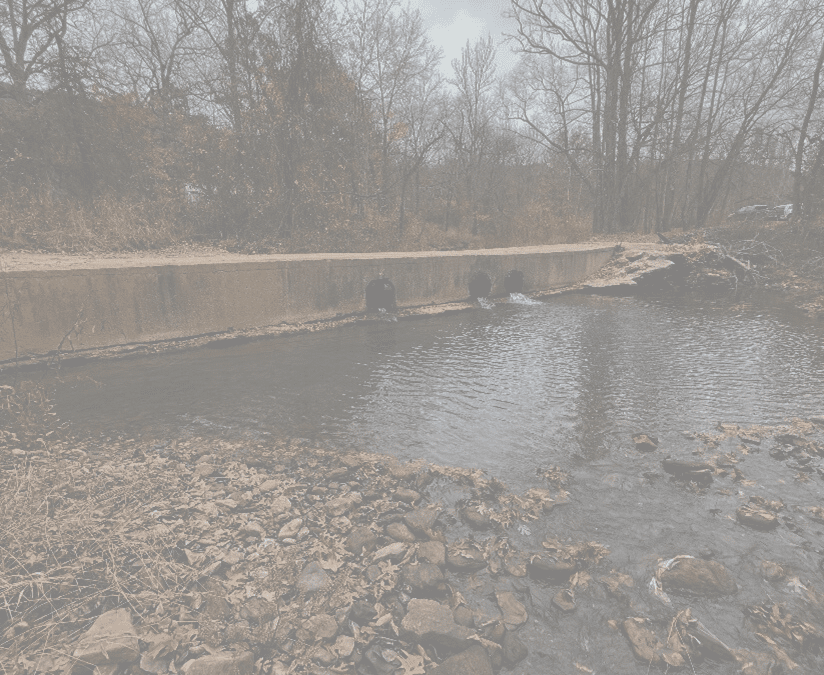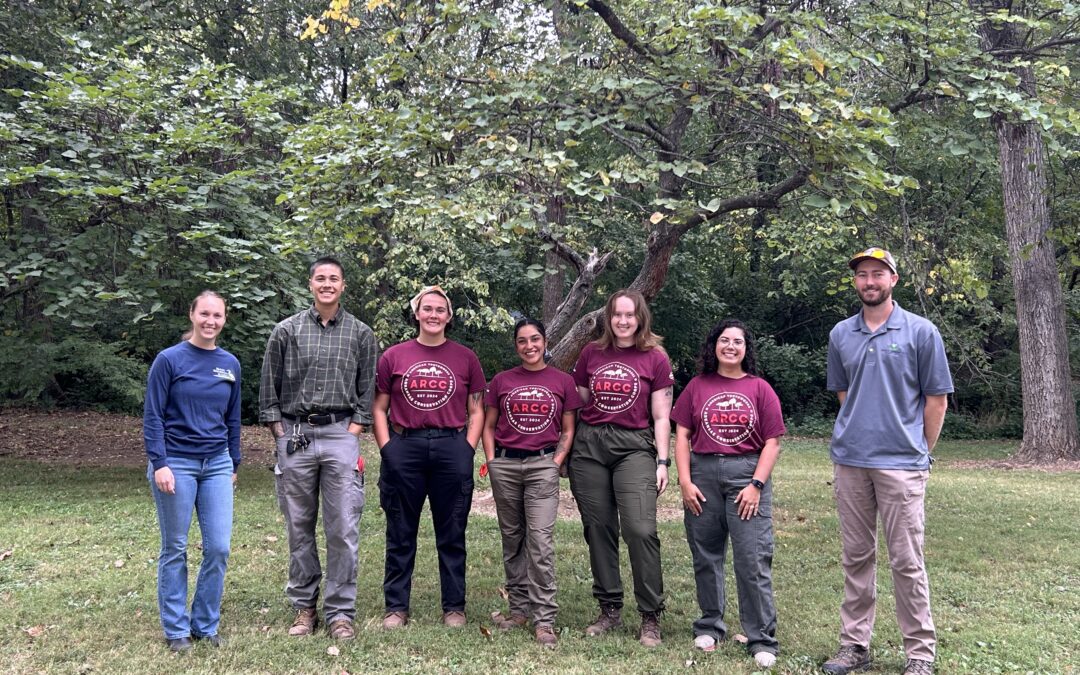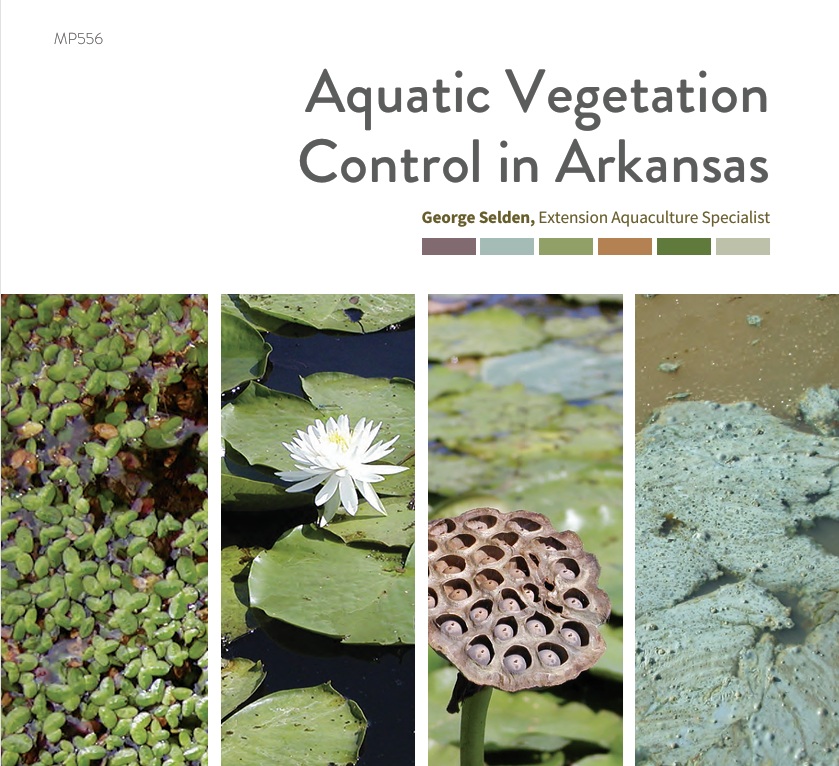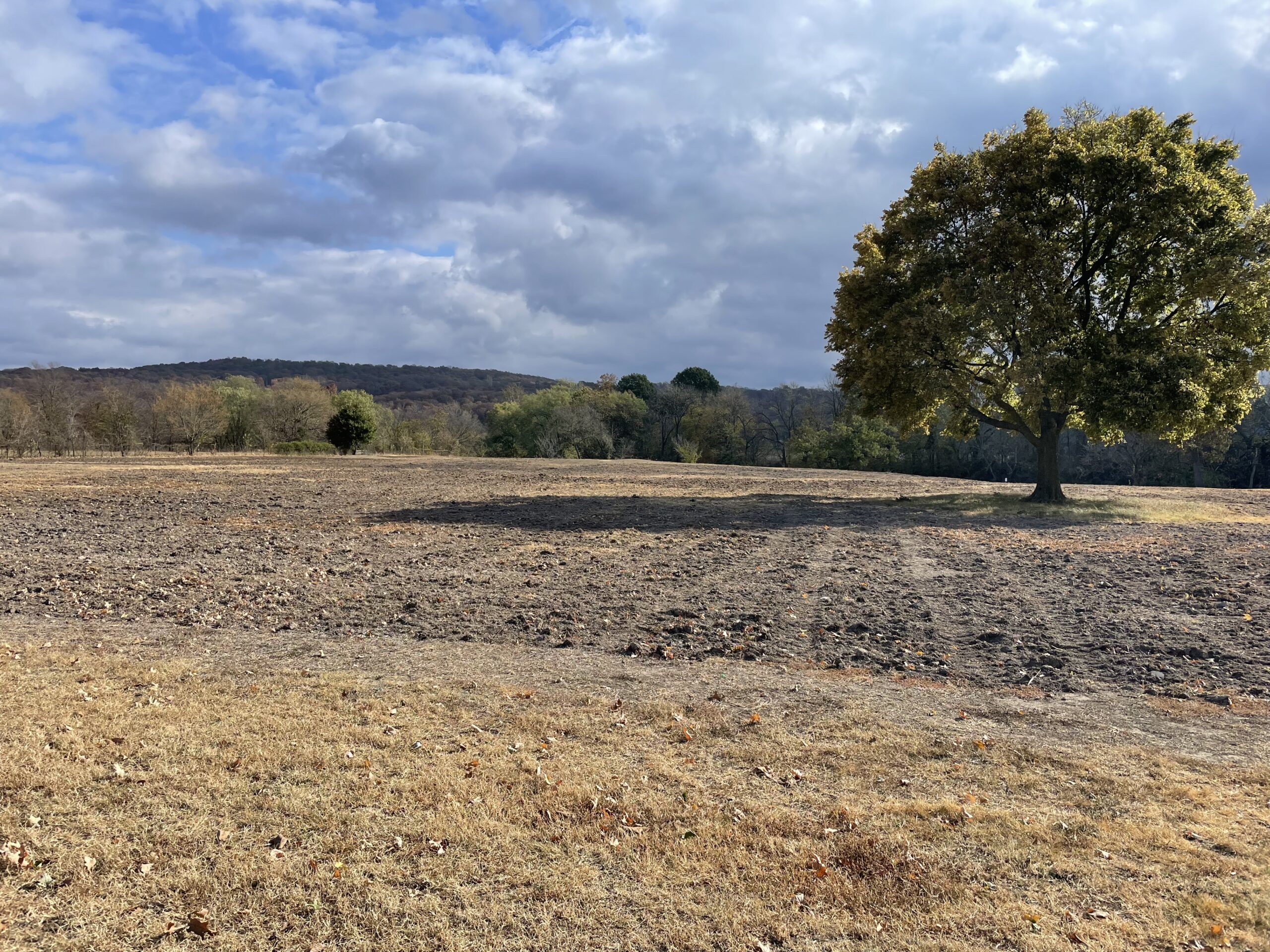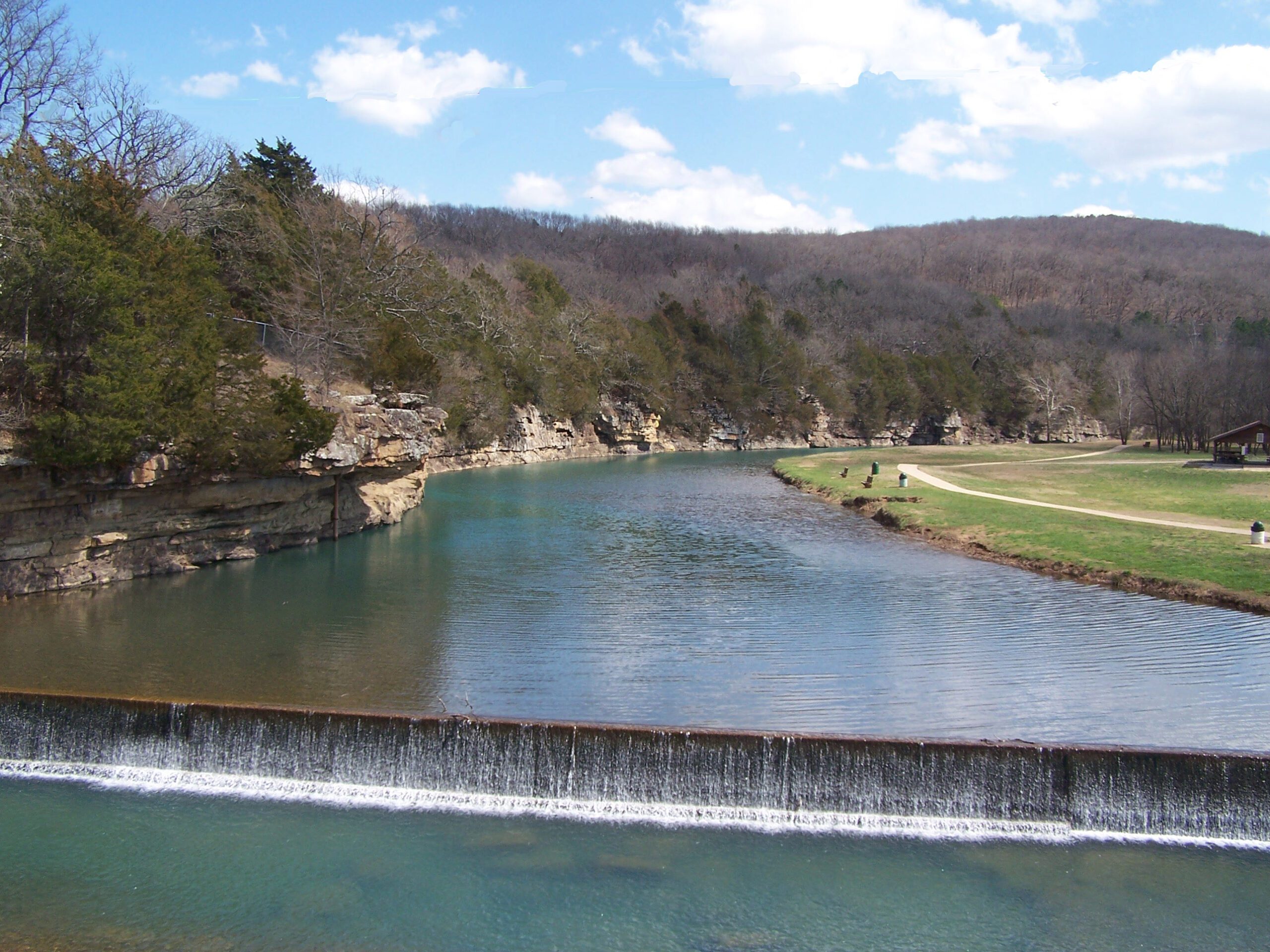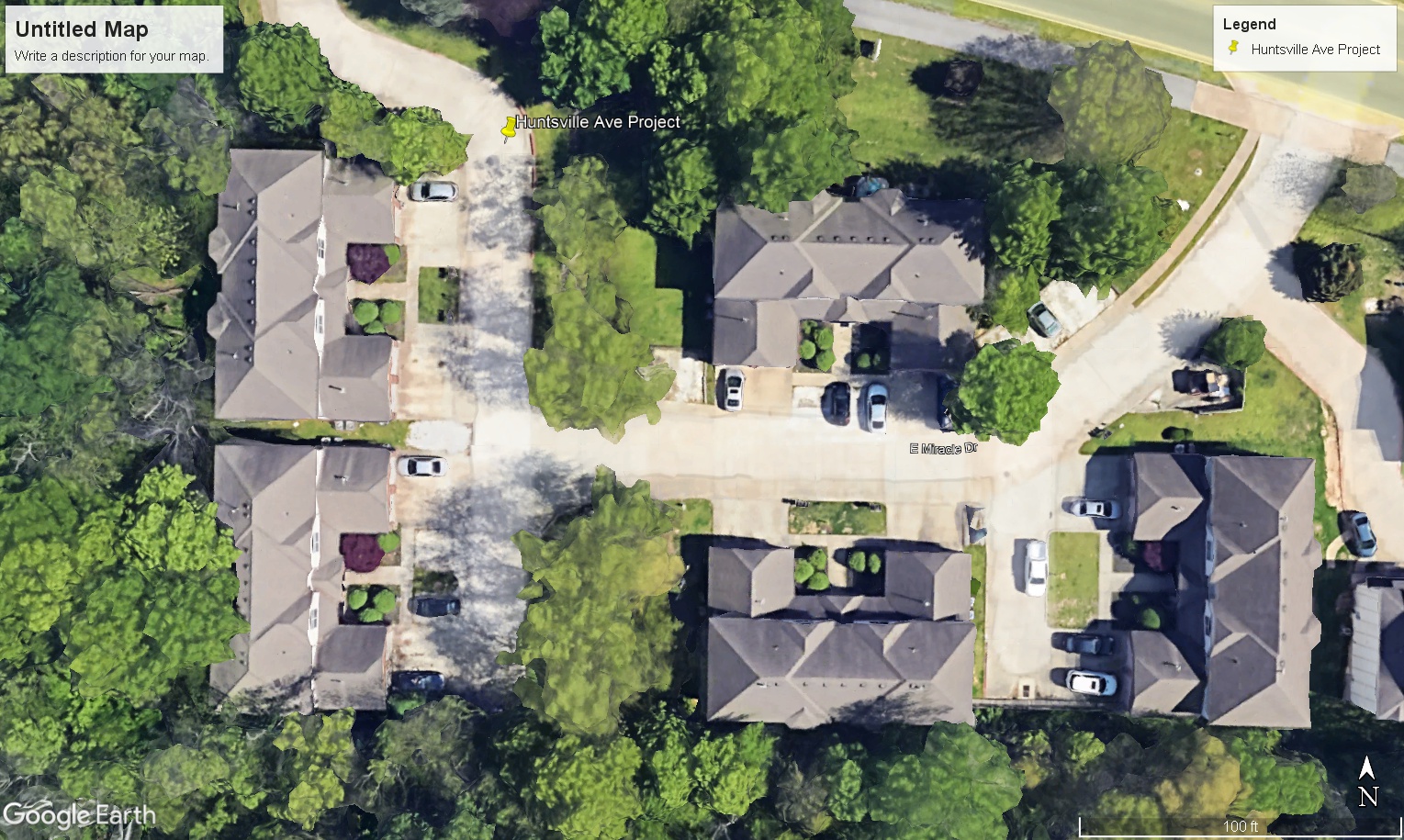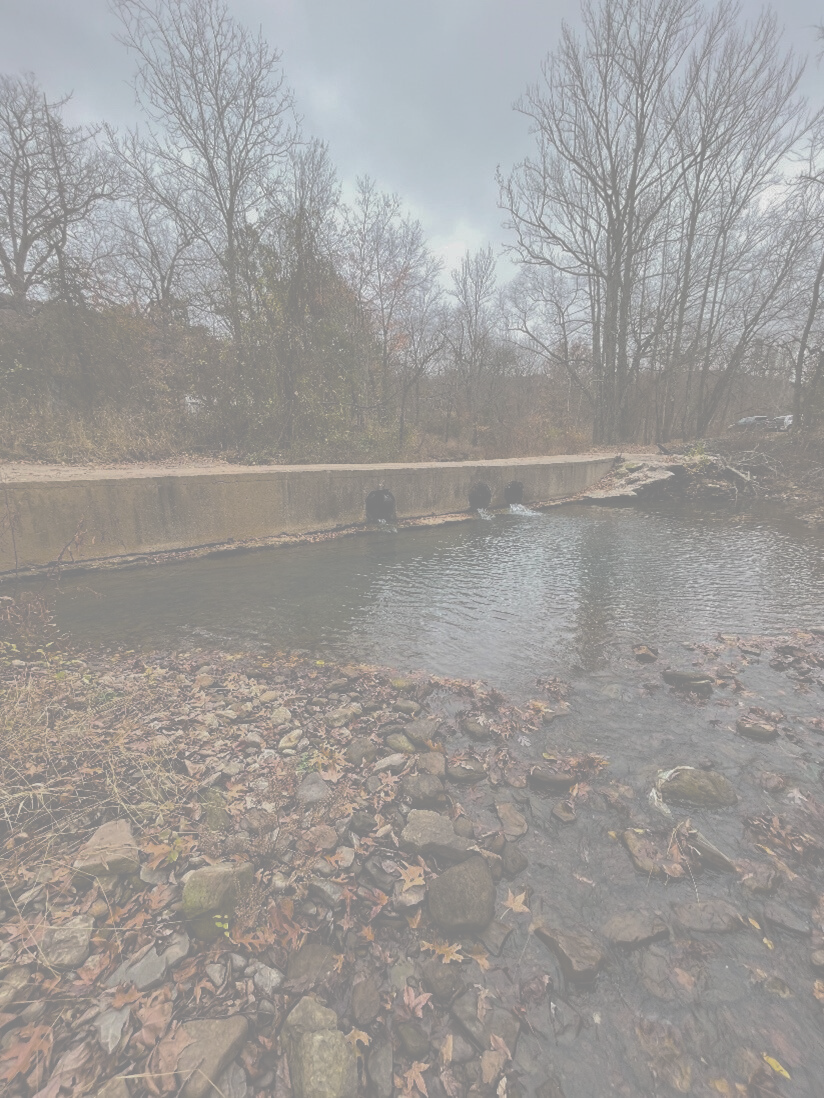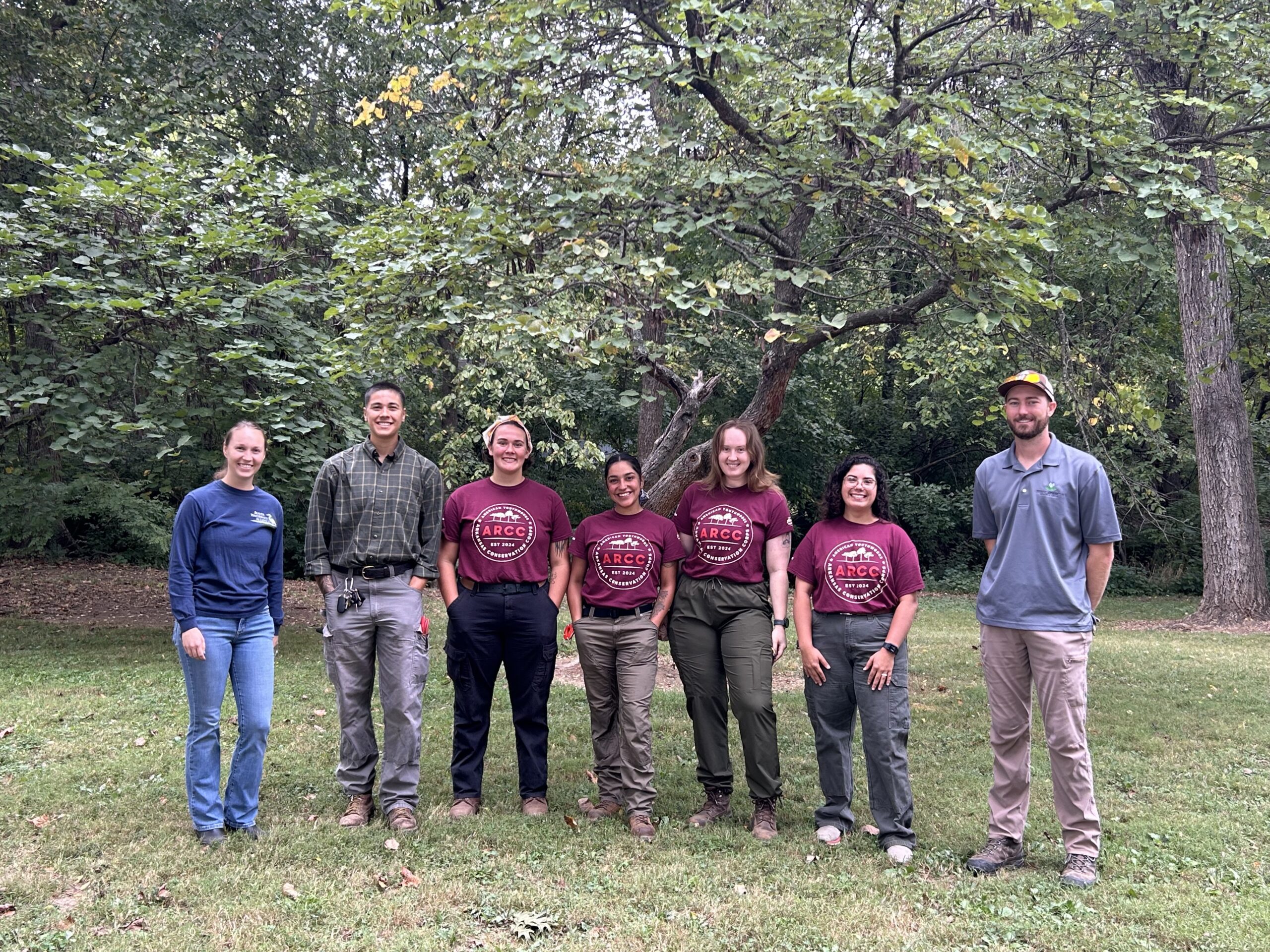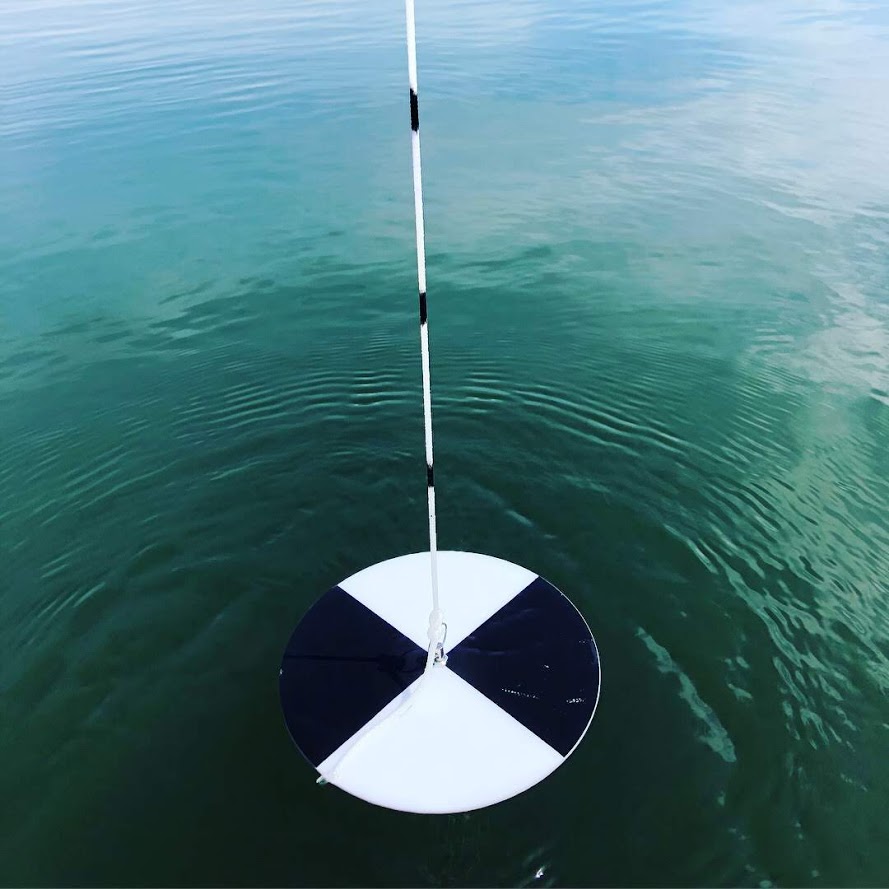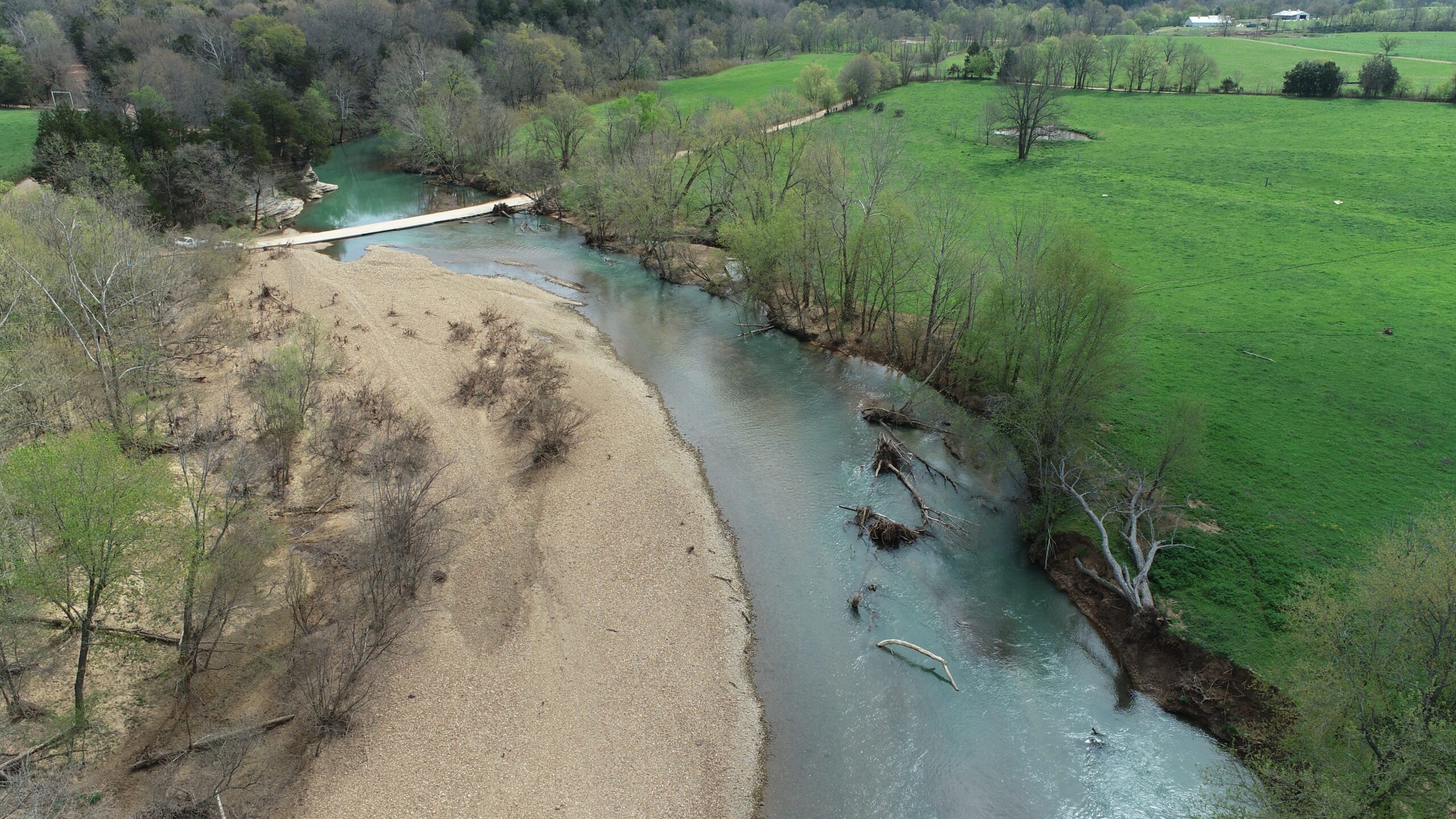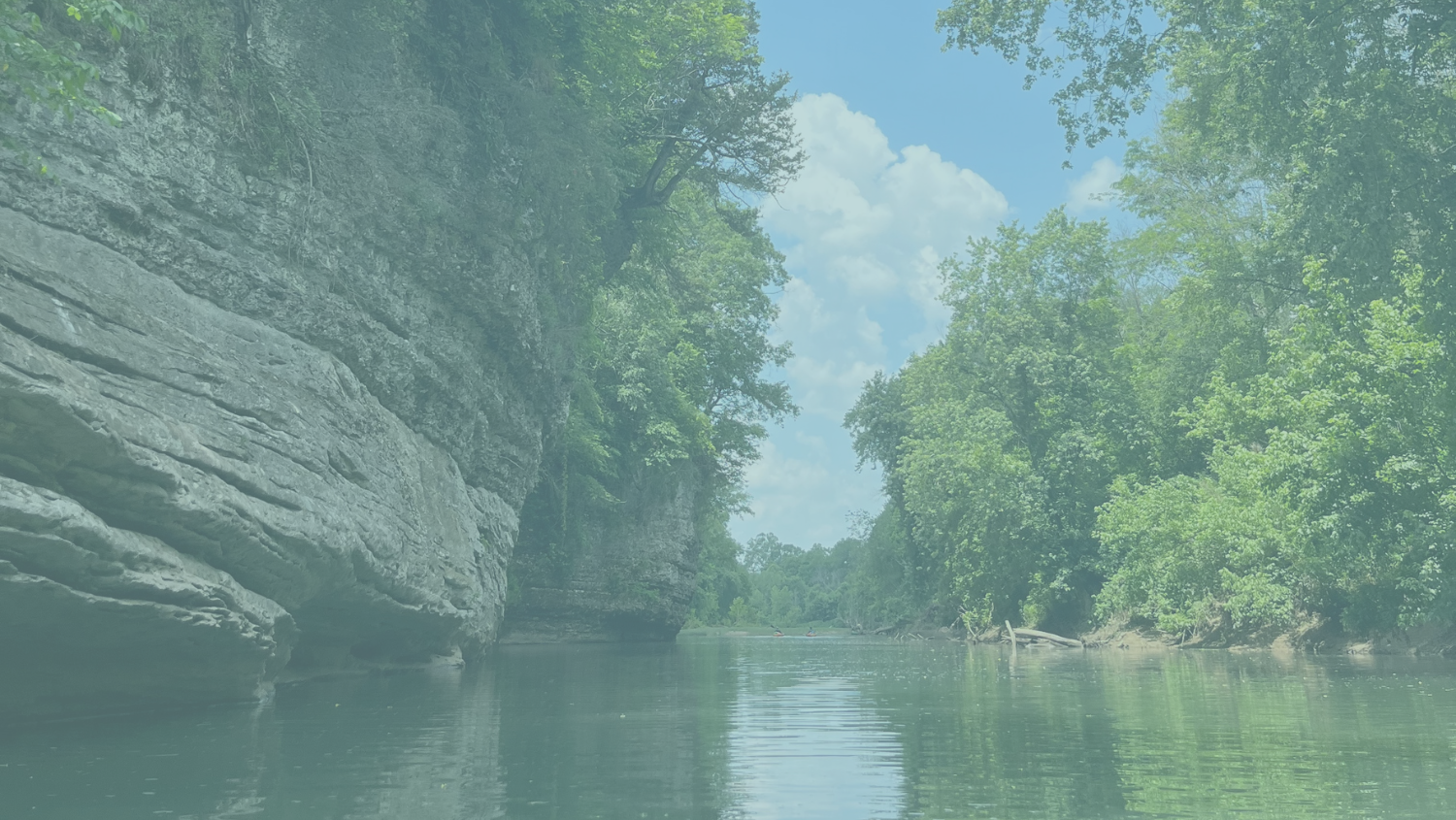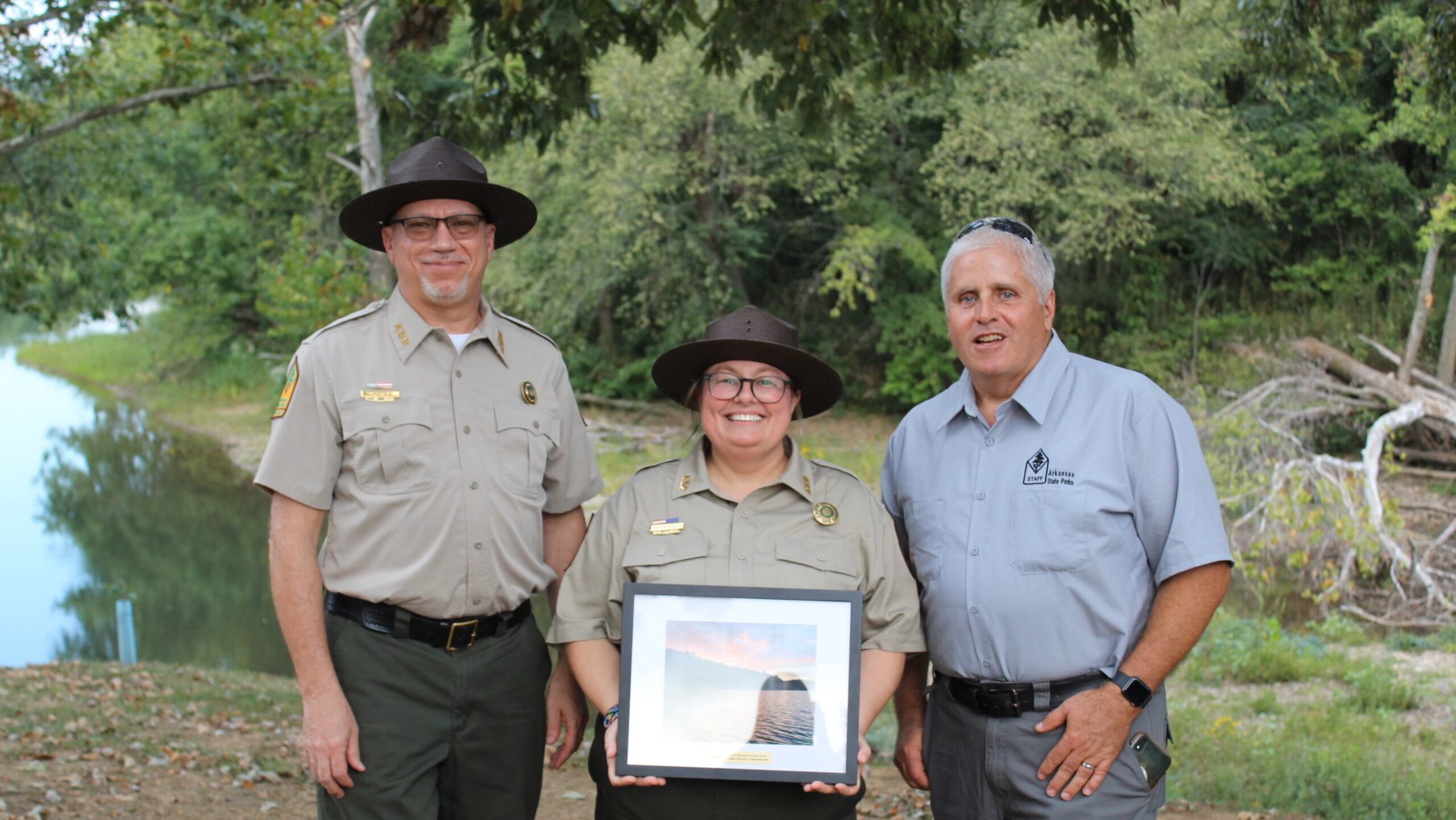SPRING 2022 | BEAVER WATERSHED ALLIANCE
BEAVER LAKE WATERSHED NEWS
Dear Beaver Lake Watershed Landowner,
If you are receiving this newsletter for the first time, we welcome you to the Beaver Watershed Alliance Beaver Lake Watershed Newsletter. Our records indicate you are a landowner in the Beaver Lake watershed. We invite you to read through this newsletter to learn about the Alliance and ways you as a landowner can make a positive impact on water quality in the beautiful Beaver Lake watershed.
The Alliance is a 501c3 nonprofit and was formed in 2011 to establish programming to maintain high-quality drinking water in Beaver Lake and improve water quality within the Beaver Lake watershed. We are non-regulatory, represent a diverse stakeholder group from conservation, education, water utilities, technical and science, business, agriculture, recreation, and local government groups working together for the cause of clean water. Water quality in Beaver Lake is good, and the Alliance is working proactively to protect it from degradation. However, there are threats to water quality including streambank erosion and loss of riparian area, hydrologic modification resulting from land-use change due to rapid urbanization, and nutrient and sediment pollution from pastureland, urban landscapes, and construction sites.
The Alliance seeks a balanced approach to address causes of pollutants entering tributaries and utilizes local resources, leverages local, state and federal funding, and builds partnerships to advance the Beaver Lake Watershed Protection Strategy. Oftentimes, potential project sites and best land management opportunities lie on private lands. We are a community resource here to help you find ways to manage stormwater, think of solutions together, and utilize local funding programs to improve water quality. Whether you have forest, pasture, streamside or urban property, our staff is ready to assist you. Together, we can ensure a long-term, healthy watershed.
Sincerely,
the Alliance Team
IS YOUR LAND WATER FRIENDLY?
Free Alliance Site Visits for Beaver Lake Watershed Landowners
Did you know that the Alliance offers free site visits to landowners in the Beaver Lake watershed? If you need guidance on what to do for erosion, excess runoff, standing water, or other water-related issues, the Alliance can help!
Our staff includes a Forest and Stream Resource Specialist, Agriculture Resource Specialist, Geospatial Ecologist, and Urban Low-Impact Development Specialist. With Northwest Arkansas and the lands of the Beaver Lake Watershed rapidly urbanizing, landowners are often faced with issues of streambank erosion, flooding, invasive plant species, and erosion caused by stormwater runoff.
Contact us today to have an Alliance specialist come out for a free site visit to help you determine best land management practices for your property to be water friendly. Not only does this help protect the source of our water- Beaver Lake, it can also help save you money, protect your land, and help with other land management goals such as wildlife habitat. (Read more about wildlife habitat improvement in “Healthier Forests in the Beaver Lake Watershed” article)
While some projects, such as severely eroded streambanks, require special funding and partnerships, oftentimes, there are simple, low-cost solutions for everyday problems. Excess water on small-order streams can be addressed with no-mow zones, algae-filled ponds can benefit from strategically placed filter strips of native plants, plans can be made for eradicating invasive species, and smaller stream erosion issues can be handled with “low-tech” erosion control practices.
Whatever the issue you may be facing, the Alliance can help with suggestions from specialists, exploring financial assistance, connecting you with the right organizations, and so much more. Email info@beaverwatershedalliance.org or call 479-750-8007 to learn more.

Above: Alliance staff visiting with landowners during a site visit.
Below: A map of the Beaver Lake Watershed. Visit the interactive map on our website to determine if your property is within the watershed.

HEALTHIER FORESTS IN THE BEAVER LAKE WATERSHED
Wildlife Stewardship Plans & Funding Opportunities – Daniel Hagood

A Wildlife Stewardship Plan is a free, technical guide that assists landowners in implementing habitat improvement practices. At the Alliance, we create plans that are tailored to a landowner’s specific interests, whether that be improving habitat for hunting, pollinators, or bird watching. Some of the most common practices include prescribed burning, establishing native warm-season grasses, and forest stand improvement. These plans benefit more than wildlife, they aid with maintaining a healthy and productive native forest which could increase property value. Forests depend on periodic disturbance in a variety of forms, such as fire or even storm damage. Just like in a cattle herd, overcrowding will hinder the health of the population and limit reproduction and growth of the next generation.
With forested land making up over 70% of the Beaver Lake watershed, forest management is a crucial aspect of maintaining a high-quality drinking water supply. As seen in the image to the left, the Ozarks and Boston Mountains were home to open woodlands with a diverse, herbaceous understory that provided habitat for a wide array of wildlife, promoted groundwater recharge, and allowed sediment to be trapped as water flowed over the landscape. As humans have altered these natural environments, many woodlands have converted to overgrown forests that lack diversity and provide poor habitat for wildlife. A Wildlife Stewardship Plan is a great tool to help restore forests and improve wildlife habitat.
A Wildlife Stewardship Plan also consists of possible funding sources for recommended practices. The Arkansas Game and Fish Commission, Quail Forever, and Natural Resource Conservation Service all have programs that provide technical and/or financial assistance to carry out habitat improvements.
If you are interested in learning more about a Wildlife Stewardship Plan and what you could do to have a more productive ecosystem for wildlife, please give us a call at 479-750-8007 or send an email to daniel@beaverwatershedalliance.org
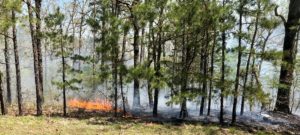
Above: A prescribed burn in the Beaver Lake watershed. Prescribed burns can minimize the spread of pest insects and disease, remove unwanted species that threaten species native to an ecosystem, provide forage for game, improve habitat, recycle nutrients back to the soil, and promote the growth of trees and wildflowers. (US Department of Agriculture)
ARKANSAS WATER RESOURCES & WATERSHEDS CONFERENCE
The Arkansas Water Resource Center (AWRC), Arkansas Forests and Drinking Water Collaborative (AFDWC), the Arkansas Department of Agriculture – Forest Division, and the Beaver Watershed Alliance, are collaborating on a watershed resource conference to be held July 13-14, 2022. The conference will be held in Fayetteville, Arkansas at the Waldrip Hall in the state-of-the-art Don Tyson Center for Agricultural Sciences, an iconic research and education facility. This collaborative effort is bringing top-notch speakers and presentations on HABs, Recreation, Source Water Protection, and Landowner Engagement. Topics will include presentations on Harmful Algal Blooms, incentivized conservation, source water protection, low impact development, agriculture initiatives, and tours of local conservation projects.
We invite you to network and engage with water resource professionals on how to sustain, improve, and protect our state’s most precious resources- forests and water.
For more information and to register, visit beaverwatershedalliance.org/events/, email
info@beaverwatershedalliance.org or call 479-750-8007.
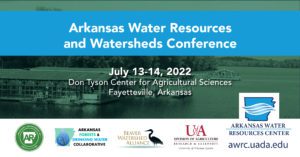
VISIT THE NEW ALLIANCE WEBSITE!
Landowner Resources, Educational Materials, Interactive Maps, and More
The Alliance website recently received an exciting new makeover and we want to invite you to check it out. Visit www.beaverwatershedalliance.org to learn all about the Alliance, download informational material specific to the Beaver Lake watershed, explore on an interactive map, request site visits, and so much more.
Under the “Who We Are” tab, you can learn all about the Alliance, read staff bios, learn about our amazing partners, and review past years’ annual reports and metrics. Under the “What We Do” tab, landowners can learn about landowner assistance programs including free site assessment plans (SAPs), Forestry Assistance, Streamside Assistance, Urban/Residential Lot Assistance, and Agriculture/Pasture lands Assistance. Here you can also review past projects completed by the Alliance.
Interested in volunteering or attending an Alliance workshop or event? Head over to the “Get Involved” tab to see a full list of upcoming events. The Alliance hosts volunteer events like invasive plant removals, native plantings, and river cleanups We also have special events like our June 25th Youth Fishing Tournament, July 13-14 Arkansas Water Resources and Watershed Conference, Quarterly Speaker Series, and so much more!
Lastly, you can visit the “Contact Us” tab to reach out to us about any inquiries, or visit the “Donate” tab if you would like to support the Alliance mission. Any donation amount is hugely appreciated, and we couldn’t protect the Beaver Lake Watershed without amazing supporters!
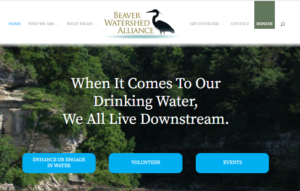
PROFITABLE PRODUCTION ON PASTURES
Grazing for Soil & Water Health – Jerry Genz
A recent agriculture workshop was held near Clifty Creek, and attendees were greeted with a variety of subject matter related to soil and water health.The event was titled “Profitable Production on Pastures: Grazing for Soil and Water. Jerry Genz (BWA Agricultural Resource Specialist) provided a 365-day photo presentation of his test farm where he has been grazing cattle under high rotational grazing practices for five years. This practice has yielded three consecutive years of 300+ grazing days. Included in Jerry’s presentation were actual grazing days for the test farm compared to the average hay feeding period for this area, demonstrating the benefit of rotational grazing practices that can reduce producer inputs for supplied feed stock while improving forage quality, creating a level of drought resistance, increasing plant density and biodiversity, which improves soil and water health.
Jon House (Wildlife Biologist USDA/APHIS/Wildlife Services) spoke on a lesser-known invasive species, feral hogs. Jon’s information included the quick advancement of this invasive species into Arkansas, the continued advancement into Northwest Arkansas, the damage that creates erosion and reduces producer profits from disturbed grazing lands, and how the USDA can assist landowners in control measures. Dirk Philipp (U of A Department of Animal Science) shared information with the audience regarding grazing riparian areas. Dirk shared his expertise relative to “when, how, and why” to graze riparian areas and was instrumental during the pasture walk. Linda Coffey (Livestock Specialist NCAT) recapped the event with an interactive Q&A and sharing information about Soil for Water. Doug Myers provided his farm for a walk, talk, and more one on one communication, providing an opportunity for producers to share their experiences.
Email Jerry at jerry@beaverwatershedalliance.org for more information on any of these topics!
NATIONAL WATER QUALITY INITIATIVE (NWQI)
Financial and Technical Assistance for the Brush Creek-Roberts Creek Watersheds
The Brush Creek-Roberts Creek National Water Quality Initiative (NWQI) project is a voluntary program that provides financial and technical assistance to agricultural producers for addressing water quality concerns in these watersheds located in portions of Washington and Madison counties. The primary resource concerns addressed by the project are field sediment, nutrients, and pathogens. Funding is available to eligible landowners through the Environmental Quality Incentives Program (EQIP). The Arkansas Natural Resources Conservation Service (NRCS) will provide financial assistance using a suite of conservation practices for the purpose of addressing resource concerns.
Agricultural lands are eligible for enrollment in the initiative. Some core approved conservation practices include: waste storage facility, conservation cover, riparian buffers, prescribed grazing, streambank and shoreline protection, and tree/shrub establishment.
The Alliance can help landowners navigate the application process to secure funding, and is also available to answer any questions. Contact us today for a detailed fact sheet on this initiative, help with the application process, or for any questions you may have. See the map below for the project area.
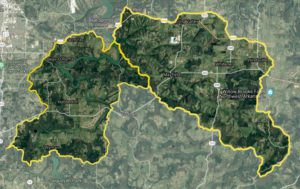
Email info@beaverwatershedalliance.org or call 479-750-8007 for questions or assistance!
Thank you partners and sponsors for making this newsletter possible!
